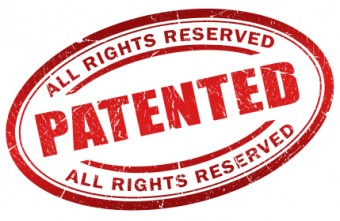 On the morning of August 15, 2011, a glaring headline in every newspaper caught the attention, and baffled, many technology buffs: “Google Buys Motorola Mobility.”
On the morning of August 15, 2011, a glaring headline in every newspaper caught the attention, and baffled, many technology buffs: “Google Buys Motorola Mobility.”
The Players
For anyone that does not know better, Google is a technology behemoth and is one of the heads of the three-headed technology beast- the other two being Apple and Microsoft. On the other hand, Motorola was a once successful mobile company that has since gone downhill and was near bankruptcy when Google bought them out. Newspaper columnists around the country were confused by Google’s move (and still are, more than half a year later). Especially, considering the whopping pay-out Motorola received: $12.5 billion!
Was it the Patent Portfolio?
Google paid good money for Motorola and according to many insiders Google bought Motorola in order to get their hands on Motorola’s stash of more than 25,000 patents. Over the past few years, there has been a “patent war” between Google, Apple and Microsoft- which has led to numerous, very costly legal battles over who owns what and who is violating whose patents. All in all, it is a huge mess that is extremely costly to the U.S. judicial system and every company wants as many patents as they can get their hands on.
There was similar consternation over the patents belonging to Nortel, which was selling their patents to the highest bidder. In the end, Microsoft and Apple got the goods, but had to pay an exorbitant amount of money for them.
Another Possibility
Another theory is that Google bought Motorola in order to gain control of the contentious and ultra-competitive Android market. Google might vertically integrate, by not only offering the operating system for mobile devices, but my selling the devices themselves. This theory explains why Google paid so much money for the entity itself (rather than just buying the patents), but is confusing in that such a move might alienate the other device manufacturers who currently offer Google’s Android operating system on their products; why promote the competition?
Google Plays Defense?
In the end, Google’s true motive is still unknown. The action may have been a simple defensive move to prevent Microsoft or Apple from bolstering their patent portfolios even more (the Mobility transaction affected more than three times the number of patents that what Microsoft and Apple got in the Nortel deal,).
A Hidden Gem?
The acquisition of the entity itself may simply be a side-effect of the patent transaction, which has allowed Google to dip their toes in the hardware market and provide some alternatives. Some questions are still left unanswered by these theories and the general consensus is that Google doesn’t operate without a clear direction (aka motive). Some pundits have speculated that Google may have seen something in Motorola’s portfolio that they believe will be worth a lot of money in the future. Only time will tell if that is true or false.
The only Known Fact – Google wants to Dominate Mobile
The interesting thing about Google getting into the hardware business is that Google has never done any hardware work before. They have always been a software-focused company. Some people believe that Google will use the Motorola hardware as a way to test new software- kind of like a pilot program. The one thing that is crystal clear is that Google wants to dominate the smartphone world in the same manner that it has dominated the web search advertising market. Google has never been a company known to sit back and relax. Google has always been a company that surges forward- always competing, always innovation, always on the frontier of new technology.
Jonathan Martin is a Magento Developer who understands that the next major battlefield in online marketing and website development will come in the realm of mobile platforms.
